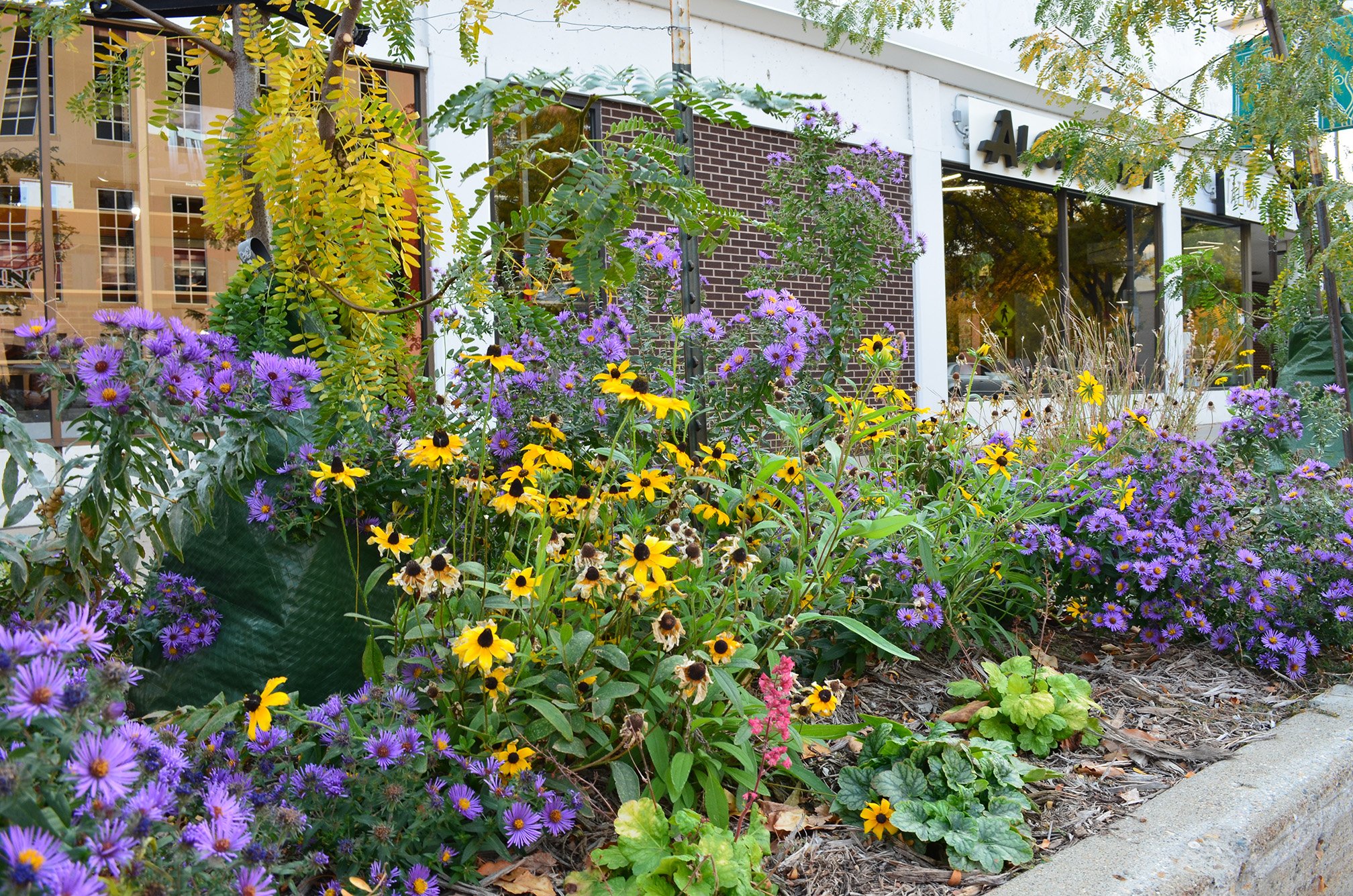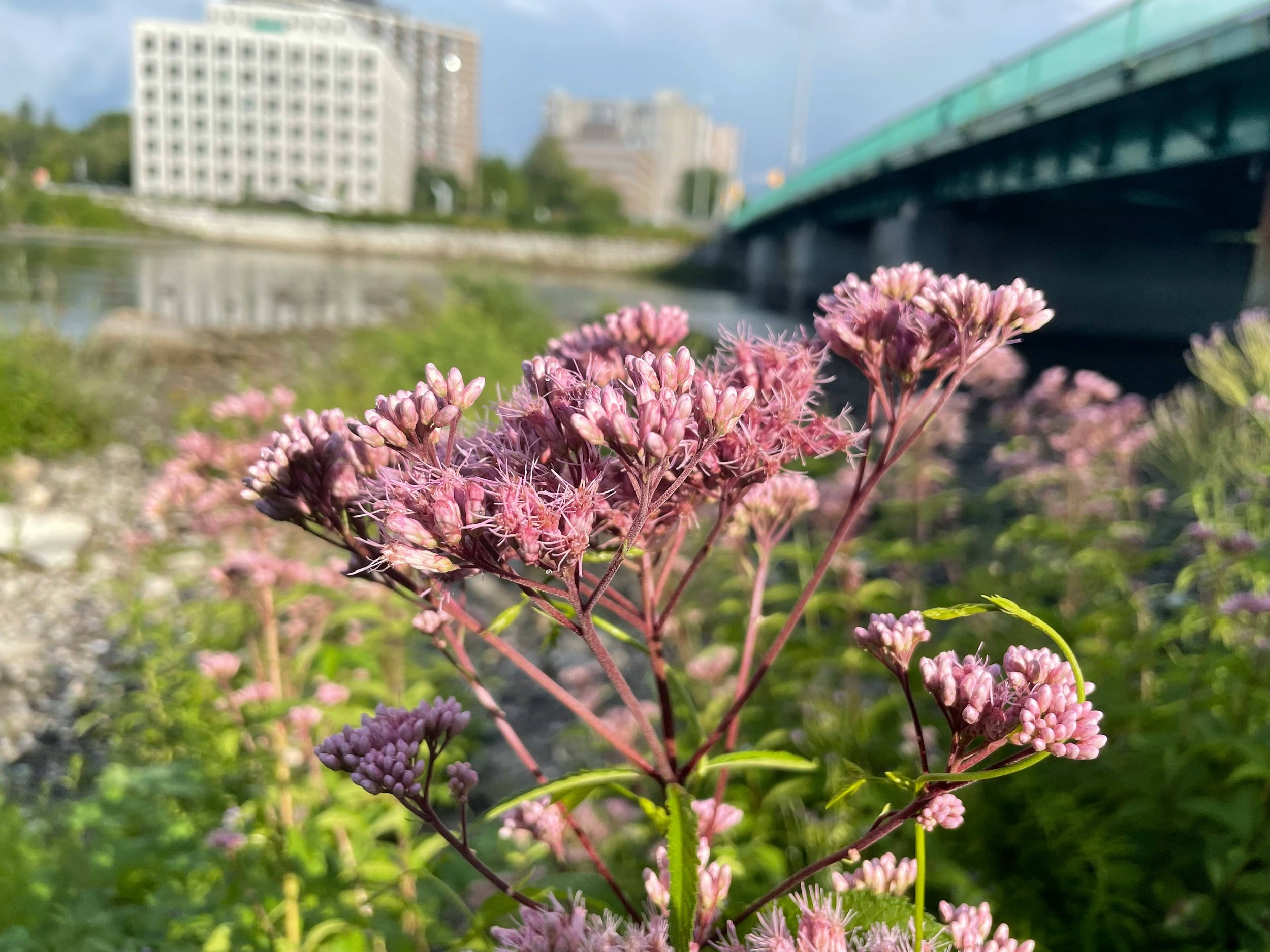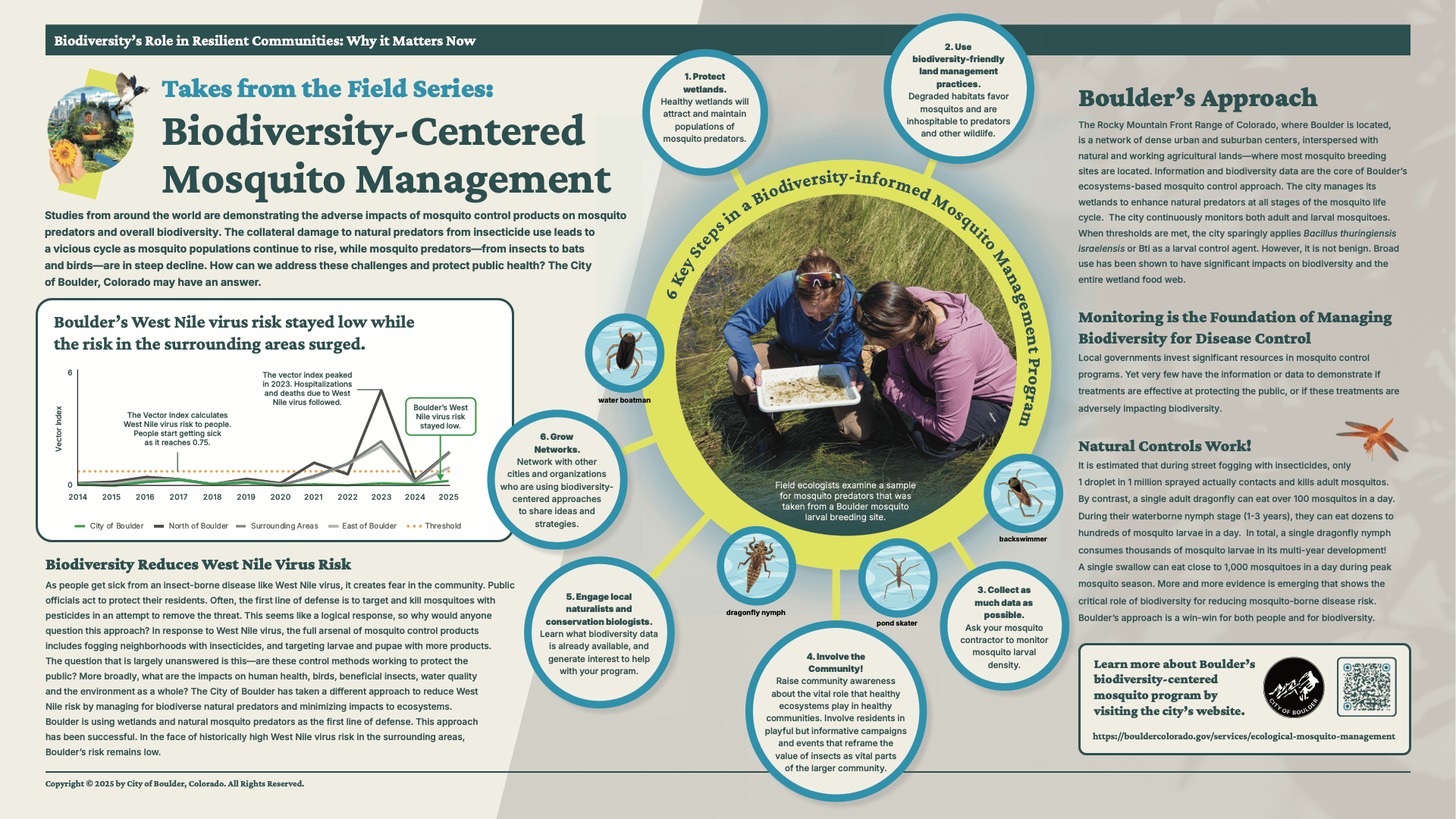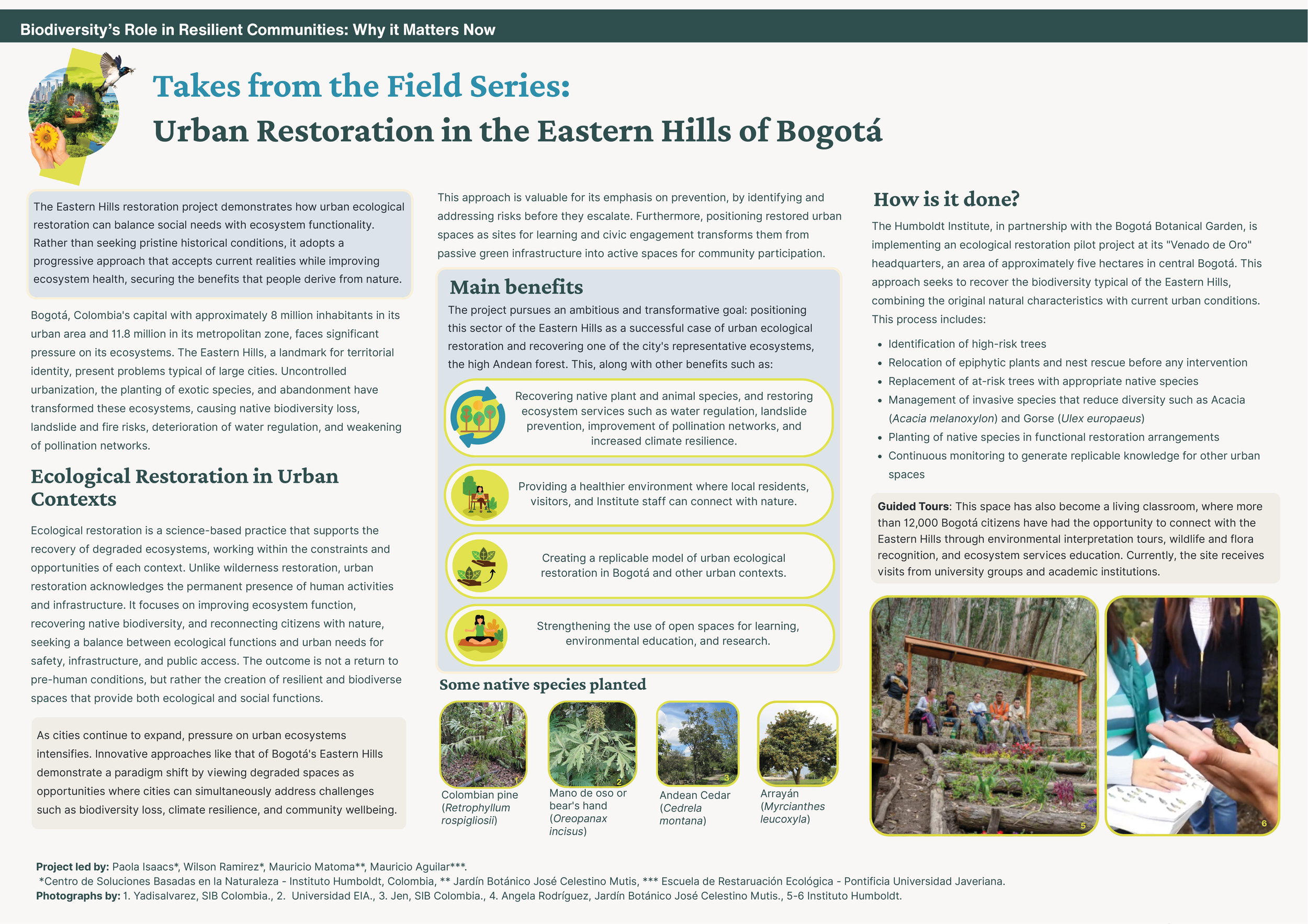
The Role of Biodiversity
in Resilient Urban Communities:
Why it Matters Now
Fall 2025 Urban Biodiversity Seminar Mini Series Recap + Takes from the Field Series
Check back as we will be sharing a synthesis document that will compile what we learned through this series and our planned next steps.
Session 1:
Biodiversity’s Role in Resilient Communities: Why it Matters Now
October 23, 2025
Session 2:
Integrating Biodiversity into Climate Resilience and
Natural Infrastructure Strategies
November 6, 2025
This Session incorporated Takes from the Field: Austin, TX + Burlington, VA
‘Takes From The Field’ No. 1 ~ Boulder, CO
‘Takes From The Field’ No. 4 ~ Bogotá
English PDF Download Español PDF Download
‘Takes From The Field’ No. 2 ~ Austin, TX
‘Takes From The Field’ No. 5 ~ Burlington, VT
‘Takes From The Field’ No. 3 ~ Issaquah, WA
‘Takes From The Field’ No. 6 ~ Charlotte, NC
Session 3:
Partnerships for Biodiversity & Equity:
A Global Approach to One Health / Planetary Health
November 20, 2025
This Session incorporated Takes from the Field: Boulder, CO
Session 4:
Biodiversity enhanced Urban Spaces and the Path Forward
December 4, 2025
This Session incorporated Takes from the Field: Charlotte, NC
Biodiversity is the diversity of species and ecosystems. It is their organization and function, and it is the ways this diversity enhances the productivity, resilience and richness of Life.
Biodiversity is also one of the greatest potential forces available to cities and communities in preparing for the challenges we face.
Yet conventional approaches to assessing and managing for biodiversity may undermine our ability to elevate and sustain it as a priority, particularly for many cities and local communities. These approaches often focus on counting species or managing to restore historic conditions. Such approaches are not well suited to urban settings that are inherently a blend of both native and non-native species. They also fail to show how biodiversity is relevant to solving the growing list of challenges facing urban communities—from climate change impacts to social and economic instability.
We propose a new initiative to begin filling these gaps and identifying opportunities for the co-benefit of people and nature in cities.
Working together over the last year, four organizations representing urban biodiversity efforts in Europe (ICLEI-EU), Latin America (Humboldt Institute), and North America (Center for Regenerative Solutions, City of Boulder, Colorado) have come together to jointly organize a trilateral dialogue on this topic between communities across these three continental and multi-cultural regions.
The Opportunity
Reframing Biodiversity in Urban Contexts
Cities worldwide are pioneering integrated approaches that demonstrate that biodiversity and community needs can be mutually reinforcing.
Singapore's urban food production creates wildlife habitat and cooling. Detroit converts vacant lots into productive farms providing food security while bringing greater biodiversity. Indigenous nations like the Snoqualmie are demonstrating how traditional ecological knowledge can guide urban food forests that support both cultural practices and biodiversity enhancement. Copenhagen's stormwater systems create recreation opportunities and wildlife habitat.
As champions of biodiversity we need to reframe the conversation to demonstrate how biodiversity is integral to addressing daily challenges that urban communities face. Rather than species counts, we need new metrics that capture:
Community Health: Designing and maintaining biodiverse landscapes that reduce heat, improve air quality, increase healthy food access, and reduce disease threats;
Economic Returns: Using natural systems in ways that reduce infrastructure costs or improve the efficiency of capital investments;
Resilience Capacity: Leveraging biodiverse landscapes to buffer extreme weather;
Social Cohesion: Creating biologically rich places that grow shared stewardship and build community connections.
Thank you to our funders and sponsors for their generous support of this urban biodiversity initiative.
Learn more about CRS’ Urban Nature-Based Climate Solutions Accelerators & Frameworks:
Interested in partnering on urban biodiversity?
Please contact us using this form.
















